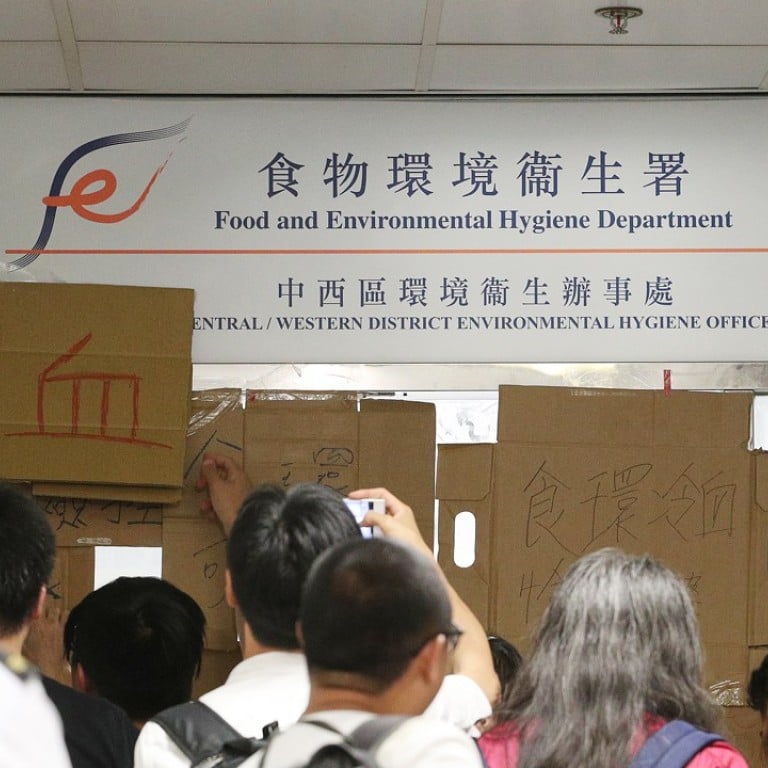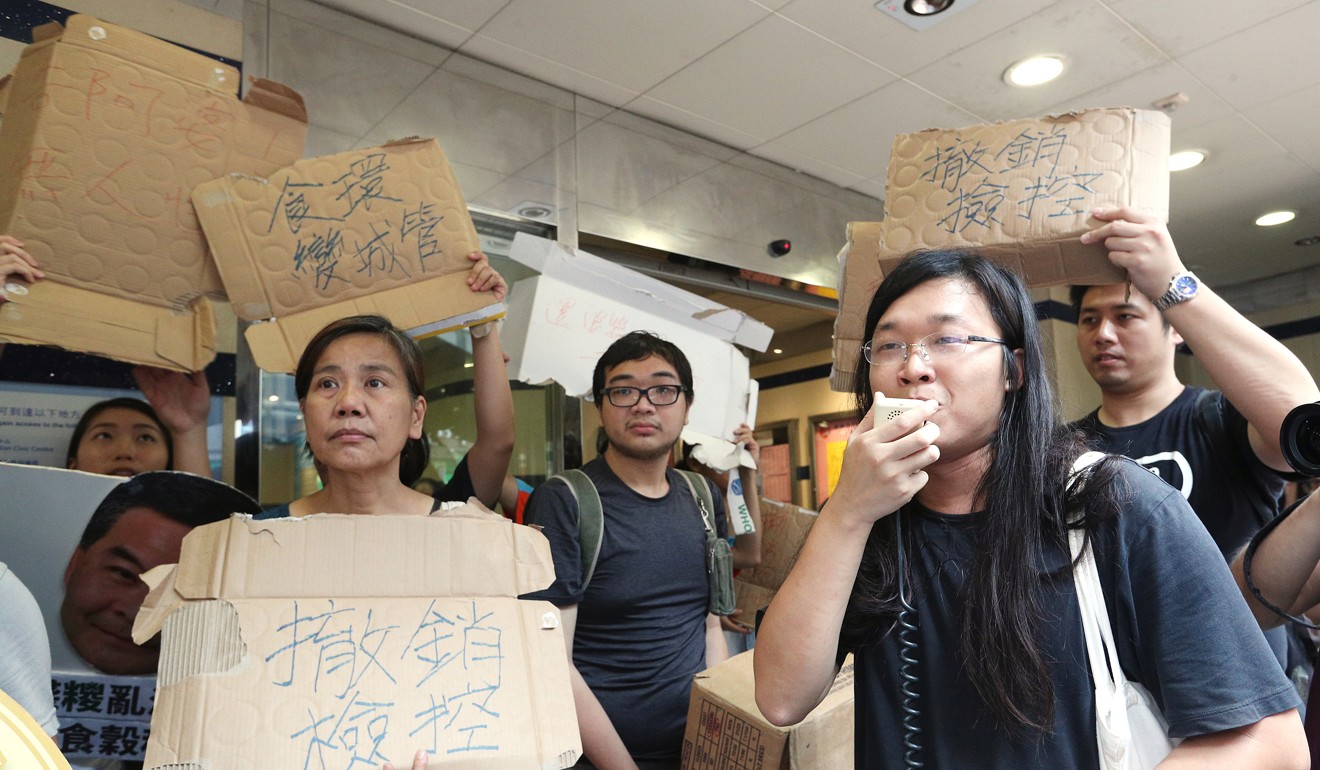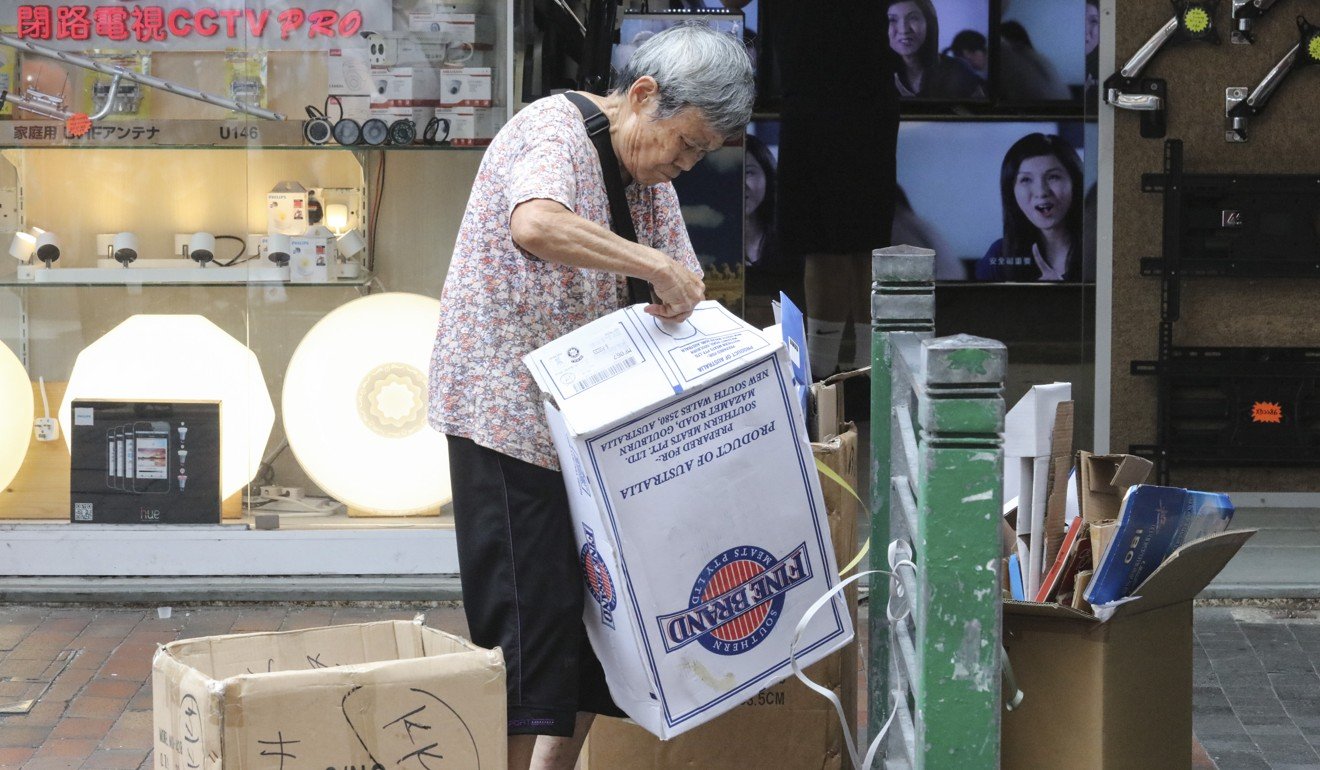
Hong Kong government officers constantly target cardboard collectors, making their lives even harder, concern group says
Scavengers regularly endure hardships similar to experience of 75-year-old woman who was recently charged for selling cardboard without a licence, group says
Hong Kong government officers are constantly targeting scavengers who collect and sell cardboard for a living, leading to them enduring ordeals similar to that recently experienced by a 75-year-old woman who was charged for selling cardboard without a licence, a concern group has said.
The group, Mission To New Arrivals, made the remarks on Tuesday after the city’s Food and Environmental Hygiene Department withdrew the charges against her on Monday.
The department’s decision followed public pressure – a petition garnered more than 15,000 signatures, and around 30 people joined a protest on Sunday. Activists have denounced the department’s officers for their “merciless behaviour” as the woman had sold the cardboard without a hawker licence for a mere HK$1.
A member of the concern group, Tang Wing-him, said it was common for cardboard collectors in many places across Hong Kong to encounter problems with the food and environmental hygiene officers.
The recent case of the elderly woman just happened to catch the public’s attention, he said.
“The issue is that we don’t see it as a job. We just see them as old people who collect rubbish. People say that they are blocking the streets [with cardboard but that is] in fact how they make a living,” Tang said during an RTHK programme on Tuesday.

“They are taking care of our streets. They are using the cardboard left on the streets which no one wants. If they don’t collect the cardboard, who would use it? Can we give them some space so they can do it with dignity?”
Many of those who collected cardboard were 60 or above, meaning employers were not willing to hire them, Tang said.
“If you were to hire a delivery person, you would hire someone younger. If you are looking for a waiter, you will recruit someone who is more agile. Some elderly people have no choice but to become scavengers, and they are contributing to society by doing so.”
The case of the 75-year-old woman comes as the wealth gap in the city has grown to a historic high. Earlier this month the government announced that the richest households in Hong Kong were now paid about 44 times the amount earned by the poorest families.
Tang’s colleague, Peter Chiu, said the department had stepped up its efforts to get rid of cardboard collectors – usually by confiscating their cardboard and other objects, and not necessarily by charging them.

A food and environmental hygiene officer, in a phone interview during the radio programme, said officers wanted to show some compassion in their work to ensure they were behaving reasonably.
“But we cannot let sympathy come before our responsibility. We treat old and young people equally,” he said.
The department said on Monday that it had decided to withdraw the charges against the woman after considering her background and consulting the Department of Justice.
The incident happened on June 11 in Central. The woman, who suffers from rheumatoid arthritis and gastritis, was approached by six department officers and later charged for unlicensed hawking and obstruction of public places after she sold cardboard to a domestic worker for HK$1.
She paid HK$30 to be released on bail, even though she only had HK$34 on her at the time, leaving her with HK$4 to get home.

